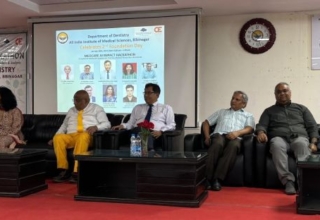Children and young people under-25 who become victims of cyberbullying are more than twice as likely to enact self-harm and attempt suicide than non-victims.
And the perpetrators of cyberbullying are also more likely to experience suicidal thoughts and behaviours, researchers say.
The study, which is a collaboration of a number of researchers from across the UK, including the University of Birmingham, looked at more than 150,000 children and young people across 30 countries, over a 21-year period.
Their findings, published on open access in PLOS One, highlighted the significant impact that cyberbullying involvement (as bullies and victims) can have on children and young people.
The researchers say it shows an urgent need for effective prevention and intervention in bullying strategies. Professor Paul Montgomery, University of Birmingham said: “Prevention of cyberbullying should be included in school anti-bullying policies, alongside broader concepts such as digital citizenship, online peer support for victims, how an electronic bystander might appropriately intervene; and more specific interventions such as how to contact mobile phone companies and Internet service providers to block, educate, or identify users.
“Suicide prevention and intervention is essential within any comprehensive anti-bullying programme and should incorporate a whole-school approach to include awareness raising and training for staff and pupils.”
A number of key recommendations have been made:
- Cyberbullying involvement should be considered by policymakers who implement bullying prevention (in addition to traditional bullying) and safe Internet use programmes;
- Clinicians working with children and young people and assessing mental health issues should routinely ask about experiences of cyberbullying;
- The impact of cyberbullying should be included in the training of child and adolescent mental health professionals;
- Children and young people involved in cyberbullying should be screened for common mental disorders and self-harm;
- School, family, and community programmes that promote appropriate use of technology are important;
- Prevention of cyberbullying should be included in school anti-bullying policies, alongside broader concepts such as digital citizenship, online peer support for victims, how an electronic bystander might appropriately intervene; and more specific interventions such as how to contact mobile phone companies and Internet service providers to block, educate, or identify users; and
- Suicide prevention and intervention is essential within any comprehensive anti-bullying programme and should incorporate a whole-school approach to include awareness raising and training for staff and pupils.
The study also found a strong link between being a cyber-victim and a perpetrator. This duality was found to particularly put males at higher risk of depression and suicidal behaviours.
The researchers highlighted that these vulnerabilities should be recognised at school so that cyberbullying behaviours would be seen as an opportunity to support vulnerable young people, rather than for discipline.










